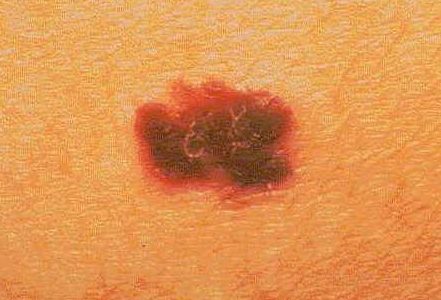Aussie researchers make huge discovery in melanoma treatment


A new discovery could have massive implications for melanoma treatment. Photo: Getty
Researchers from Melbourne University and the Peter Doherty Institute have made a major breakthrough in treating melanomas.
Dr Emma Bawden, postdoctoral researcher at the Doherty Institute and lead author of the study, said researchers have found a type of cell — called a CD4+ T cell — that shows serious promise in treating melanoma.
“We found that they migrate into the tumours and they could actually kill or eradicate melanoma by a variety of mechanisms,” she said.
“We require more research to validate these findings in melanoma patients, and we eventually hope to see more therapeutic strategies targeting CD4+ T cells make their way into clinical trials.”
She said the team originally didn’t expect that the cells would have such a strong effect.
“If you inject these cells into mice that have melanoma, they cure the mice,” Bawden said.
“Just a very small dose of these cells are able to cure the mice and this suggests they have really potent anti-tumour properties.”
Melanoma is a highly aggressive form of skin cancer, with more than 15,000 Australians diagnosed each year.

More than 15,000 people are diagnosed with skin cancer in Australia each year. Photo: Getty
The cells used in the research are traditionally called helper T cells because they aid the activation of other immune cells which combat disease and infection.
Most dangerous
While there are several forms of skin cancer, melanoma is considered the most dangerous because it spreads through the body in a process called metastasis.
Bawden said normally, someone with melanoma receives a treatment called immune checkpoint blockade.
“It is a therapy that essentially enhances the immune response that has been shut down by the tumour,” she said.
“We unleash the brakes of the immune system and it really boosts the response.”
She said patients are entering an “era of personalised medicine”.
“We treat everyone’s cancer differently, depending on the specifics,” Bawden said.
“Often it is a combination of different treatments, and now that we’ve shed light on a new function of these cells, this would definitely be worth further investigation to which patients would benefit.”
At least two in three Australians will be diagnosed with a form of skin cancer in their lifetime, with men both more likely to develop skin cancer and die from it, according to the Cancer Council.
The future
Bawden said new medicines have made what was once an untreatable cancer more manageable, and she hopes the findings will help further.
“Treatment of what used to be incurable has already improved remarkably, but we need to further improve the immunotherapy strategies,” she said.
“If it is late-stage melanoma, where it’s metastasised, that’s when immunotherapy has really made some breakthrough progress.”

Australia has one of the highest incidences of melanoma in the world. Photo: AAP
She said there will definitely be more research into the cell’s ability to treat cancer.
“We’ve started looking in more human melanoma samples,” Barden said.
“The next step is to validate these findings and translate them into humans.”








